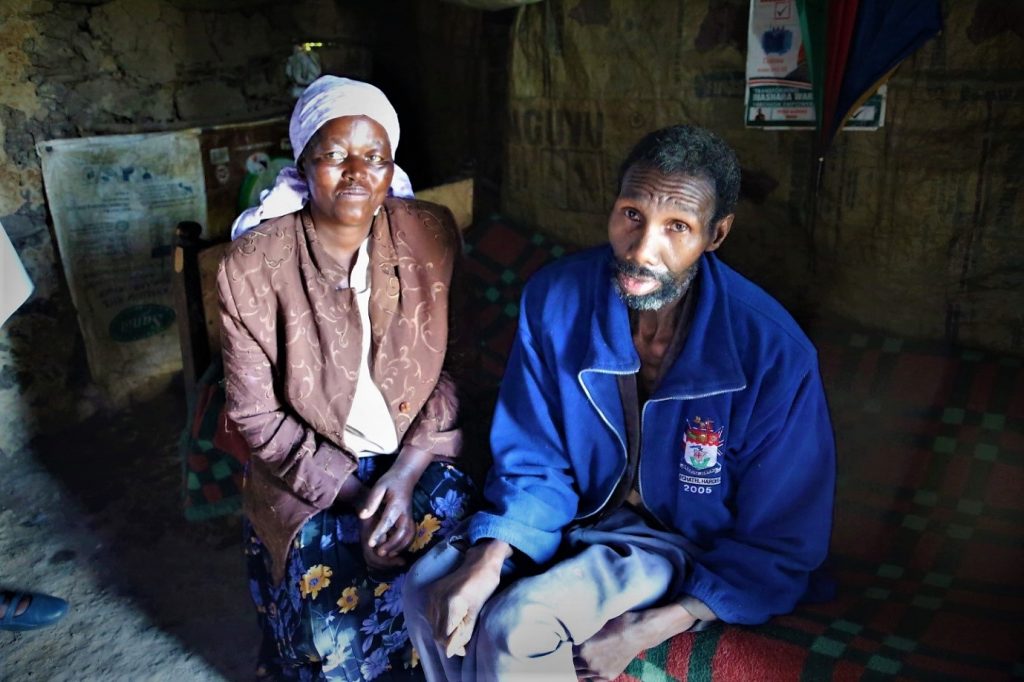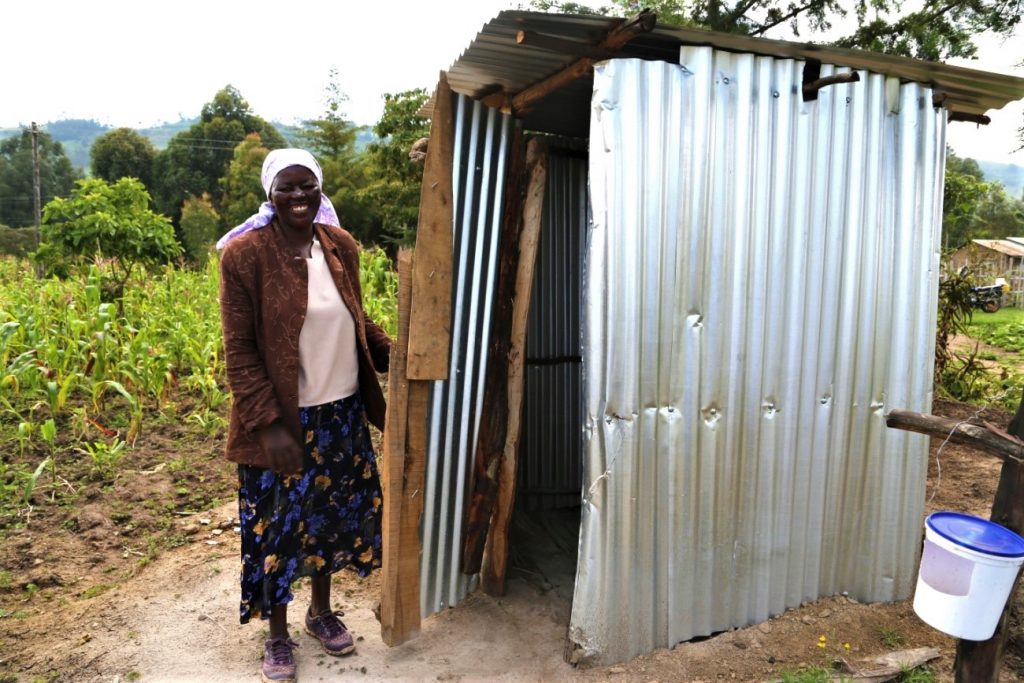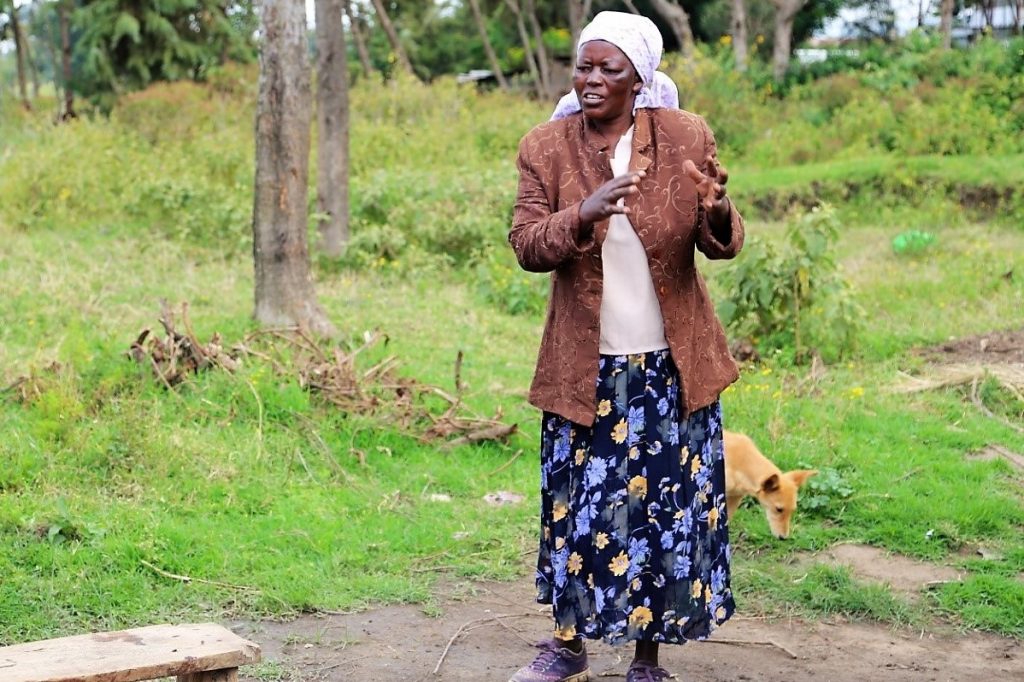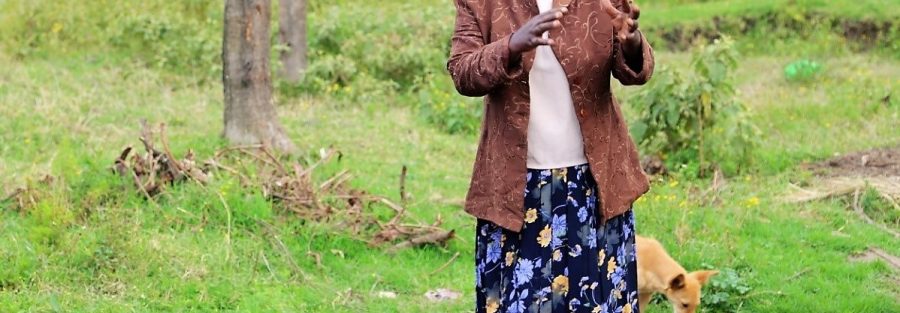Kesia Wangari is a grateful woman. She has gratitude to a whole village that came to her rescue when she did not have a toilet or a latrine. For the longest time, she bore the shame of not having either. When the Kenya Sanitation and Hygiene Improvement Programme (K-SHIP), through CBCC in collaboration with Department of Health, arrived to encourage villagers to build toilets instead of defecating in the bushes, she and her partner Njoroge were found themselves helpless. The neighbours came to her aid and built it at their cost and Kesia knows that what she and her husband received for free, cost their neighbours quite a lot.

It is quite a story. The problem for Wangari and Henry Njoroge was more than just the poverty in which they dwelt. It was the fact that this poverty had rendered them unable to afford something as basic as a toilet. So, they waited until nightfall to sneak into the abundant bushes at Naivasha sub-county’s Highland A village. In cases where nature’s call was too loud during the day for them to ignore, they defected in the house and scooped with a spade.
Yet, as the world recently celebrated the World Toilet Day, Wangari and Njoroge were comfortable in knowing they had a toilet, a fact for which they thanked their neighbours. This, however, is not half the story of Wangari and her husband. The truth is a lot more disconcerting and tear-jerking: Njoroge is paralysed and cannot walk. Whether to get out of bed and change his position from lying down to sitting, or getting out of the house for some sunshine, he needs Wangari’s nursing around the clock just to make it through the day.

Originally from Muranga, Wangari met Henry purely by happenstance – as humans often do. “We met at Kenyatta National Hospital when Henry went for check up,” she says. “He was on crutches.” That meeting has changed their lives forever and not always for the good. “We talked and went to Njoroge’s home together that particular day and his condition deteriorated day by day.” The couple is a little coy about how long that first meeting was meant to last but Njoroge’s condition kept worsening. “From crutches, he was soon unable to even get himself out of bed,” adds Wangari. I decided to stay and help him.” Besides, she did not have money with which she could have returned to Muranga if she wanted.
From there matters headed south. Njoroge’s illness meant they could not have enough to eat, let alone meet other life responsibilities, because he could not work. So Wangari began visiting neighbouring houses to look for menial jobs such as washing laundry and tilling land to earn a penny with which to feed herself and Njoroge. When Village Sanitation Committees (VSCs) began going round the villages to urge people to use toilets properly, install hand-washing facilities and put pit covers in place as part of the K-SHIP activities, Wangari and Njoroge were distraught considering they didn’t own one. Already, life’s burdens seemed intent to bury them alive; telling them to put up a toilet sounded a lot more like adding insult to injury.
“The most I could do was dig a hole in the ground in which Njoroge and I could defecate,” says Wangari. To make things worse, the government’s ban on plastic bags hit them in an unexpected way. “It used to be that when mzee defecated in the house I wore the plastic bags like gloves to clean after him. When the ban came, no plastic bags were available and cleaning became a challenge.”
The VSCs noted their situation and decided that help was needed here. “Once they began working to build for us a toilet, the community members came around to see what was happening. Many of them supposed that Njoroge had died and the digging was in preparation for his burial. When they realised the true purpose, they joined in to help. At the completion of the construction of the toilet, the VSCs and the community members attached to it a hand-washing facility and pit cover. They also provided a commode (equipment that eases the ability of a disabled person to use the toilet or latrine) for Njoroge. “So the K-SHIP activity has been, for us, a story of human compassion,” Kesia says. Indeed it is a touching story of compassion, bringing life to where it was ebbing away.

Njoroge is a 66-year old widower with three children aged 25, 14 and seven years. His illness is a mystery since no diagnosis has been carried out to ascertain its identity or cause. Yet since the toilet was built, hope has returned to the home in ways not foreseen. For instance, the community members contributed more than enough iron sheets for building the toilet. The surplus ones were diverted to cover the couple’s leaking roof. That roof had been cause for concern for the way it made the house dump and exposed the couple to the vagaries of the weather. “So for us it is more like building the toilet was the beginning of new and better things,” Wangari says. “We have a good toilet and a clean, airy house where mzee can stay the whole day without the fear of contracting infection or other.”
Although Njoroge needs Wangari’s attention full-time, the toilet has played the role of making Wangari’s work easier, cleaner and simpler. It has also made their home hygienic and more pleasant to be in – and uplifted their confidence to open their door to neighbours who visit often.



